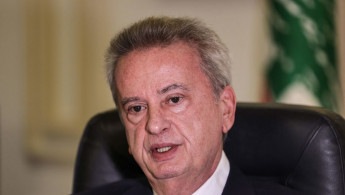Riad Salameh: Corruption probe into Lebanon central bank governor referred to Beirut court
A year-long corruption investigation into Lebanon's central bank governor Riad Salameh took a significant step forward on Thursday, when the country's top public prosecutor referred the case to a Beirut court.
Prosecutor Ghassan Oueidat ordered Salameh and a number of unnamed associates be formally investigated for embezzlement, money laundering, illicit enrichment, forgery and tax evasion, two judicial sources told Reuters.
Salameh faces investigations in Lebanon and at least five European countries, including into the alleged embezzlement of more than $300 million by him and his younger brother, Raja.
Both have denied any wrongdoing.
The latest development follows nearly a year of investigation by financial prosecutor Jean Tannous, whose role allows him to gather evidence for the case but not to press charges. Tannous confirmed the transfer in a tweet on Thursday.
The move could be a step towards a formal prosecution or charges against Salameh and his associates, lawyer Nizar Saghieh of watchdog Group Legal Agenda told Reuters.
Salameh has led the central bank for nearly three decades and retains significant support among Lebanon's top politicians despite the country's financial meltdown.
The high-profile investigation into his finances has been beset by allegations of political interference and hampered by a lack of information sharing from banks citing Lebanon's banking secrecy laws.
The Salameh brothers also filed a lawsuit last week against the state, alleging that Tannous had committed serious errors in his investigation.
Similar legal complaints against the judge probing the devastating 2020 explosion at Beirut's port paralysed that investigation.
Few if any top Lebanese officials have ever been convicted of crimes, despite decades of rampant corruption, high-profile assassinations, the port blast and the country's 2019 financial collapse, described by the World Bank as "deliberate" and one of the worst in modern times.
(Reuters)





 Follow the Middle East's top stories in English at The New Arab on Google News
Follow the Middle East's top stories in English at The New Arab on Google News


